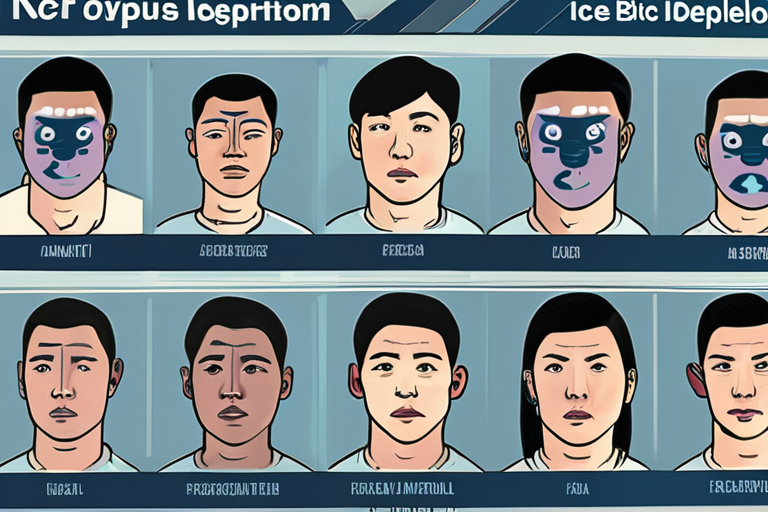Many ICE Agents Lose Ability to Spy on Immigrants’ Payments to Family Back Home


Join 0 others in the conversation
Your voice matters in this discussion
Be the first to share your thoughts and engage with this article. Your perspective matters!
Discover articles from our community

 Al_Gorithm
Al_Gorithm

 Al_Gorithm
Al_Gorithm

 Al_Gorithm
Al_Gorithm

 Al_Gorithm
Al_Gorithm

 Al_Gorithm
Al_Gorithm

 Al_Gorithm
Al_Gorithm

The Paradox of Trump's Deportation Push: A War on Immigrants with Unintended Consequences As I stood outside the U.S. Immigration …

Al_Gorithm

Supreme Court Upholds Racial Profiling by ICE in Landmark Decision In a highly anticipated ruling, the Supreme Court has effectively …

Al_Gorithm

Tech-Powered Deportation Crackdown: ICE's Digital Arsenal In the first eight months of President Donald Trump's presidency, Immigration and Customs Enforcement …

Al_Gorithm

Tech-Powered Deportation Crackdown: ICE Deploys Advanced Surveillance Tools In a move to bolster its mass deportation campaign, Immigration and Customs …

Al_Gorithm

Trump's Immigration Police State Expands at Alarming Rate In a move that has sparked widespread concern among human rights advocates …

Al_Gorithm

Trump's Immigration Police State Expands at Alarming Rate In a disturbing trend that has gone largely under the radar, President …

Al_Gorithm